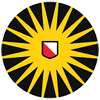Postdoc On The Development of Societal Wellbeing - Utrecht, Nederland - Universiteit Utrecht
Beschrijving
Interested in exploring how institutions influence societal wellbeing beyond GDP? Join our SCOOP project focusing on historical and comparative analysisWat ga je doen?:
Social welfare, or wellbeing, can be achieved through many channels.
This can be by way of well-functioning, open markets or by way of state interventions, including welfare programs and regulation, but of particular interest in the SCOOP programme is how other organisational solutions such as unions, charities, cooperatives, or corporate paternalism could play a role.
What sort of solutions were dominant in given cases, how did this change over time, and how successful they were at increasing wellbeing in society?
This project relates to the shift in policy and academic debates from measuring success of societies in terms of GDP per capita to wanting to measure wellbeing in more direct ways.
It also links to the question how economic growth and wellbeing are related - a founding question in the field of economic history.
Periods where they were seemingly decoupled have been studied intensively.A next step would is to better understand the drivers of well-being and the role of different organizational solutions in this.
You, as a postdoc researcher, will work on these themes.You will reconstruct wellbeing developments for a case and period of your choice, with particular attention to the link between variations in organisational solutions, differences in well-being outcomes and their distribution, and with a view for the possibilities to set up within-country or between-country comparative analyses.
You will have the following tasks and responsibilities:
- conducting research within the period of appointment;
- helping with the organisation of workshops and an international conference;
- participating in project meetings, and closely collaborating with the other members of the research team;
- helping with setting up and managing project data;
- assisting with knowledge dissemination and other activities of the project;
- presenting research results at national and international workshops and conferences.
Resilient societies are able to maintain high levels of care, work, and inclusion, despite the challenges posed by changing circumstances.
In the ten year-long transdisciplinary research programme SCOOP, we depart from the idea that a key component in the potential of societies to achieve this resilience is their ability to sustain cooperation within and between families, organizations, and communities.
However, cooperation is difficult to sustain over time. Cooperation in one area (in organisations) can undermine it in another (the family). There can be undesirable consequences, for instance for individuals not involved. Also, the conditions on which cooperation was established can change.Whereas much is known about what helps cooperation to get started, so far much less is known about what makes cooperation sustainable.
SCOOP aims to identify the secrets of sustainable cooperation and to elucidate its effects on care, work, and inclusion.Supervisors will be:
Professor Bas van Bavel, economic and social history (UU), Professor Rafael Wittek, sociology (RUG) and Dr Auke Rijpma, economic and social history (UU).
Wat breng je mee?:
General qualifications:
- You hold a PhD degree in a relevant field (as most notably history, sociology or economics) at the time of appointment.
- You are able to write academic publications and publications aimed at wider dissemination of research.
- You have excellent command of spoken and written English.
- You have team spirit and experience working in an interdisciplinary, international setting.
- You have strong interpersonal, analytical and organisational skills
- You possess a combination of relevant quantitative and qualitative skills.
Wat bieden wij?:
We offer:
- a position for 36 months;
- a working week of 38 hours and a gross monthly salary of € 4,332 in the case of full-time employment (salary scale 11 under the Collective Labour Agreement for Dutch Universities (CAO NU));
- 8% holiday pay and 8.3% yearend bonus;
In addition to the terms of employment laid down in the CAO NU, Utrecht University has a number of schemes and facilities of its own for employees.
This includes schemes facilitating professional development, leave schemes and schemes for sports and cultural activities, as well as discounts on software and other IT products.
We also offer access to additional employee benefits through our Terms of Employment Options Model. In this way, we encourage our employees to continue to invest in their growth. For more information, please visit Working at Utrecht University.Over ons:
A better future for everyone. This ambition motivates our scientists in exec
Meer banen van Universiteit Utrecht
-
Assistant professor Public International Law
Utrecht, Nederland - 3 weken geleden
-
Assistant Professor in Political Theory at UCU
Utrecht, Nederland - 3 weken geleden
-
Management-/Office-assistent departement Aardwetenschappen
Utrecht, Nederland - 2 weken geleden
-
Stagiair Publiek en Presentatie Universiteitsmuseum Utrecht
Utrecht, Nederland - 3 weken geleden
-
Managementassistent Departementsbestuur Scheikunde
Utrecht, Nederland - 2 dagen geleden
-
PhD: Reconceptualising Solidarity for Technologically Disrupted Contexts
Utrecht, Nederland - 3 weken geleden

